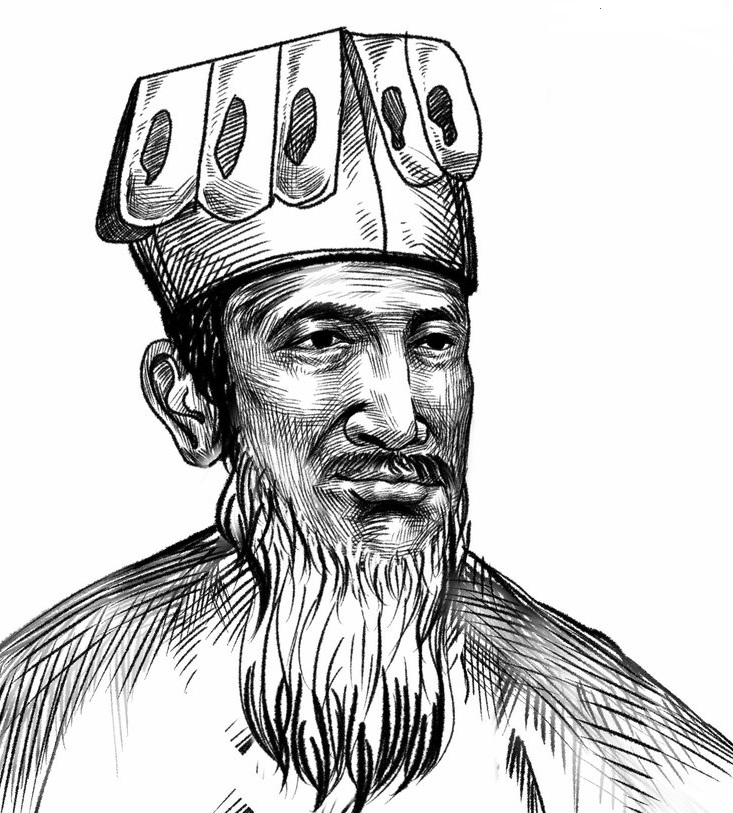The long history of the word 'Pope' in Chinese
On the occasion of the conclave, the Chinese Catholic website has retraced the historical origins of the term jiaohuang, used to refer to the Pope. It was first introduced by the great missionary Giulio Aleni in his 1623 geography treatise Record of Foreign Lands. More recently, however, the Catholic community has also begun promoting the term jiaozong, which is seen as more aligned with the spiritual role of the successor of Peter.
Milan (AsiaNews/Agencies) – The Chinese Catholic website Xinde – among its many reports dedicated to the conclave and the election of Leo XIV – published an insightful article reconstructing the historical development of the Chinese translation of the word "Pope", reflecting on the appropriateness of the term jiaohuang, currently used to denote the Bishop of Rome.
The word jiaohuang, composed of the characters jiao (doctrine) and huang (emperor), was introduced by Giulio Aleni in his geographical treatise Record of Foreign Lands (Zhifang Waiji), published in 1623. Prior to that, other translations had been proposed for the word "Pope", some borrowed from Buddhist terminology, such as "Great Monk" (Da seng) or "Dharma King" (Fa wang).
Having arrived at the Ming court in 1583, the well-known Jesuit Matteo Ricci instead opted for the expression jiaohua wang, literally "king of doctrine", which emphasised the Pope's spiritual leadership role, aligning with the Confucian idea of “educating the world.” Ricci’s choice clearly showed an intention to avoid using the word huang, which was at that time reserved exclusively for the emperor, preferring instead the title wang, meaning "king" or "sovereign", typically used for the rulers of vassal states. By adapting to the host country’s culture and customs, the missionary from Macerata sought to avoid potential conflicts with the central authorities and to aid the work of evangelisation.
Ricci’s translation first appeared in his 1602 Complete Map of the Ten Thousand Countries of the World (Kunyu Wanguo Quantu), in which it states: “The king (jiaohua wang) of this place does not marry and practises the Catholic religion. In the Roman Empire, all of Europe follows this rule.”
From that point, the expression jiaohua wang gained widespread use, appearing in the majority of subsequent Catholic documents and Chinese-language prayer books, such as the Holy Hours (Sheng jiao ri ke), which remained in circulation until the founding of the Republic of China (1912–1949). Aleni himself preferred the term in his 1642 work Four-Character Classic of the Holy Religion of the Lord of Heaven (Tianzhu shengjiao sizi jingwen).
Ricci’s translation remained popular even during the Qing dynasty (1644–1912), a period marked by deep divisions between the Catholic Church and the Middle Kingdom. It was Emperor Kangxi (r. 1661–1722) in particular who insisted that the title huang be reserved solely for the "Son of Heaven" and no other monarch – including the Pope.
Only with the end of the Opium Wars and the subsequent decline of the Qing dynasty did the word huang cease to be the emperor’s exclusive domain. Aleni’s term jiaohuang, proposed in 1623, was thus able to return as a designation for the Vicar of Christ, gradually becoming widely accepted in Chinese society up to the present day.
More recently, however, the Chinese Catholic and academic communities have begun to question the suitability of this term, now considered outdated, and have proposed replacing it with jiaozong. Composed of the characters jiao (doctrine) and zong (grand master), the latter term better reflects the Pope’s spiritual rather than secular role, in line with the principles of the Lateran Pacts.
According to the Catholic magazine Xinde, jiaozong was particularly appropriate in reference to the recently deceased Pope Francis: in the face of his humility and simplicity, the title huang was deemed inappropriate.
Despite efforts by national academic circles and media close to the State Administration for Religious Affairs to promote the use of jiaozong, it has yet to fully replace the term jiaohuang. And contrary to Xinde’s hopes, even the election of the new Pope Leo XIV has not reversed this trend, as many Chinese news sites continue to prefer the older translation.
07/02/2019 17:28







.png)










